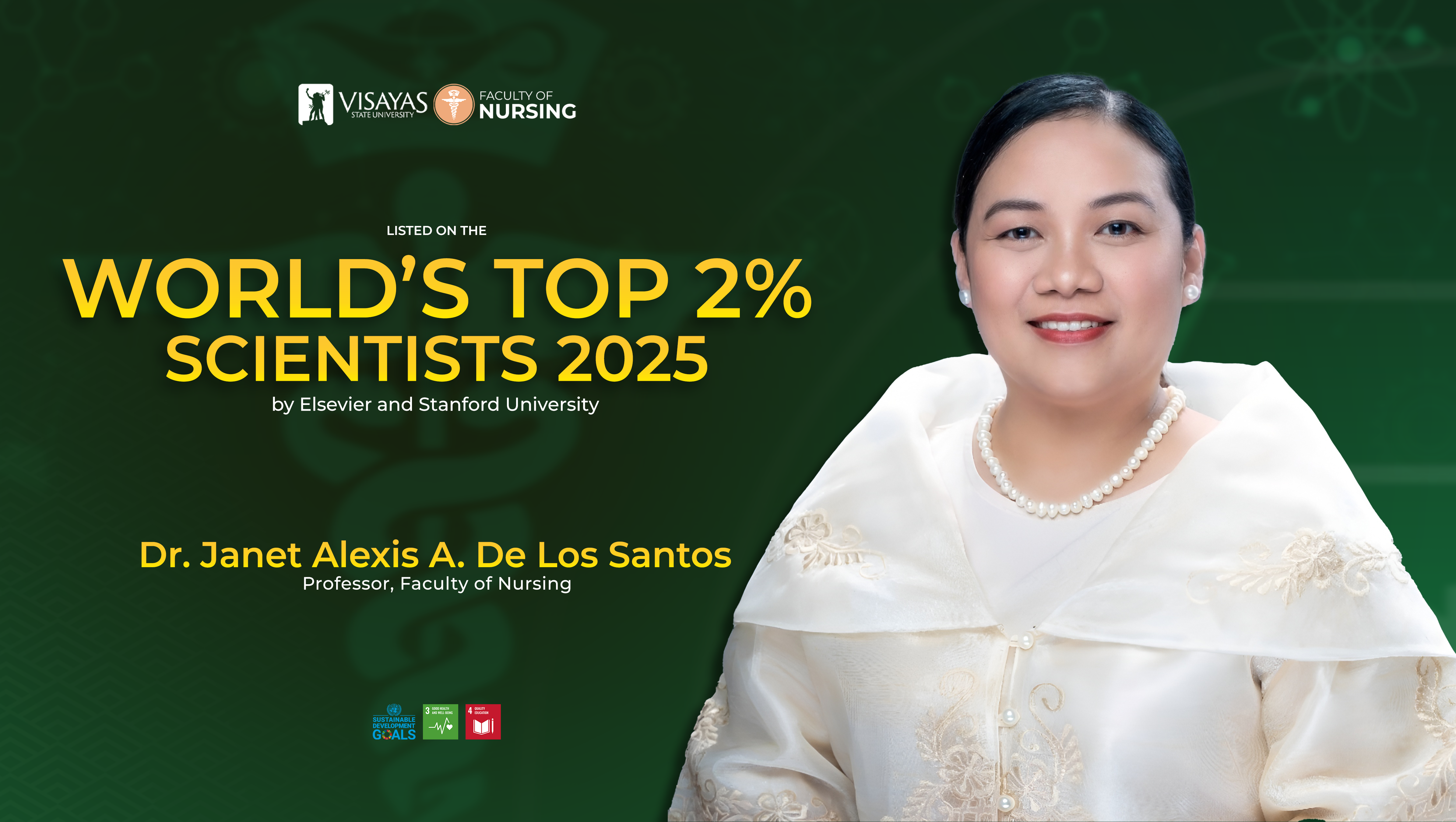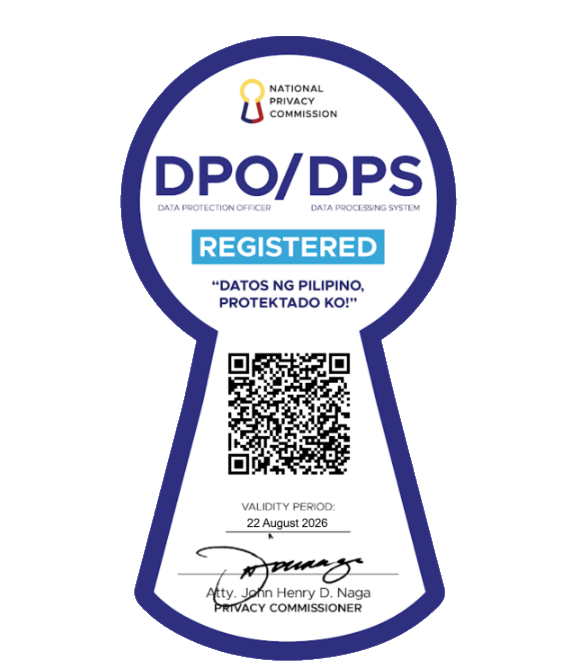VSU Nursing Prof joins World’s Top 2% Scientists for third consecutive year
- Details
- Written by Victor S. Neri
-
Published: 09 October 2025

Dr. Janet Alexis A. De los Santos of the Visayas State University-Faculty of Nursing (VSU-FON) has once again secured her place among the World’s Top 2% Scientists, an annual global ranking published by Elsevier and Stanford University.
Released on September 20, 2025, the list identifies the most influential scientists across disciplines based on citations and productivity. Dr. De los Santos is among the 69 researchers from the Philippines who made it this year, and she remains the only Philippine-based researcher from Eastern Visayas to be included.
The list places Dr. De los Santos in the field of Public Health and Health Services, with a subfield specialization in Nursing. Within this subfield, she ranked 307th globally out of thousands of nursing scientists evaluated.
Her overall global rank is 129,669 across all disciplines. This is now the third consecutive year that she has been included in the Top 2% list, having first appeared in 2023.
Dr. De los Santos shared her sense of fulfillment at being part of the growing number of Filipino researchers earning international recognition.
“I am happy and blessed, especially that the trend of Philippine scientists is increasing. It only shows that our higher education system is going in the right direction in terms of global competitiveness. In the near future I am confident that VSU will have more researchers on the list. I hope this will also inspire Viscans to do more on research and knowledge generation that benefit communities and for nation building,” she said.
[READ: Nursing prof continues to be among World’s Top 2% Scientists by Elsevier]
Dr. De los Santos is recognized for her influential research on COVID-19 and HIV/AIDS, which ranks among the most cited in her field. A dedicated HIV advocate, she has devoted her expertise to training communities and health workers to break the stigma surrounding the disease and promote inclusive healthcare.
This year, Dr. De los Santos published a scoping review on HIV prevention among high-risk populations in the Philippines, where she highlighted persistent gaps in knowledge, stigma, health-seeking behaviors, policy, and education. This study was featured in AIDS Care, a leading international journal on HIV/AIDS research.
In late 2024, she authored a widely circulated paper titled “From volunteers to vital forces: The untapped power of barangay health workers in curbing HIV in the Philippines,” which shed light on the crucial but often overlooked role of grassroots health workers in addressing the HIV crisis, particularly in underserved and rural areas.
Adding to these milestones, Dr. De los Santos has also taken on a leadership role as Secretary of the Philippine One Health University Network (PhilOHUN) for the 2025–2026 term, further expanding her impact on public health and education at the national level.
Dr. De los Santos’s continued inclusion in the Top 2% list exemplifies how a university in Eastern Visayas can contribute meaningfully to the global conversation on health, public policy, and education.
The World’s Top 2% Scientists list is considered one of the most comprehensive global rankings of scientific impact. It uses data from Scopus, one of the world’s largest citation databases, and is produced by a collaboration between Stanford University and Elsevier.
Researchers are assessed based on multiple indicators, including their h-index, co-authorship adjusted hm-index, number of citations, and composite scores that take into account their long-term and single-year performance.
Her efforts, particularly in the areas of HIV prevention and nursing practice, continue to shape academic conversations and inform policy directions both locally and globally. More importantly, her success offers an inspiring example to her colleagues and students in VSU to achieve recognition at the highest levels of the global scientific community.
This article is aligned with the Sustainable Development Goal (SDG) 3: Good Health and Well-being and SDG 4: Quality Education.


